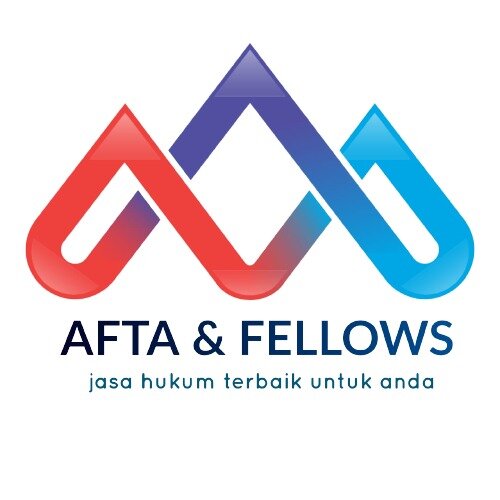Best Collaborative Law Lawyers in Yogyakarta
Share your needs with us, get contacted by law firms.
Free. Takes 2 min.
Free Guide to Hiring a Family Lawyer
List of the best lawyers in Yogyakarta, Indonesia
About Collaborative Law in Yogyakarta, Indonesia:
Collaborative law is an alternative dispute resolution method that allows individuals to resolve their legal issues, such as family law matters, outside of the traditional court system. It involves a cooperative approach where both parties and their lawyers work together to reach mutually beneficial solutions.
Why You May Need a Lawyer:
Seeking legal advice in collaborative law can be helpful in various situations, including:
- Divorce or separation: If you are going through a divorce or separation and wish to resolve issues like child custody, visitation, alimony, or property division through collaboration rather than litigation.
- Child custody and visitation: When you need assistance in creating a parenting plan that is in the best interest of your child and agrees with both parties.
- Property division: When you need guidance in dividing assets and debts fairly and deciding on the distribution of marital or shared property.
- Spousal support: If you require help in determining spousal support or alimony that is considerate of both parties' needs and financial situations.
- Pre-nuptial or post-nuptial agreements: When you are considering entering into a marital agreement and need legal advice to ensure the agreement is fair and meets legal requirements.
Local Laws Overview:
In Yogyakarta, Indonesia, collaborative law is recognized and governed by the Law of the Republic of Indonesia No. 15 Year 2006 concerning the Second Amendment to the Law No. 7 of 1989 on the Religious Judiciary. It allows individuals, particularly in family law matters, to resolve their disputes through an agreed-upon process outside of the court system. Collaborative law focuses on finding mutually satisfactory solutions while prioritizing the best interests of any children involved.
Frequently Asked Questions:
Q: How does collaborative law differ from traditional litigation?
A: Collaborative law encourages cooperation and open communication between parties to reach mutually beneficial agreements. Unlike litigation, it aims to minimize conflict, promote respect, and prioritize the well-being of all parties involved.
Q: Is collaborative law legally binding in Yogyakarta?
A: Yes, once an agreement is reached in collaborative law, it can be legally binding. However, it is important to have a lawyer review the final agreement to ensure its compliance with local laws and regulations.
Q: Can collaborative law be used for all types of legal disputes in Yogyakarta?
A: Collaborative law is primarily used for family law matters, such as divorce, child custody, and spousal support. However, it may not be suitable for all cases, particularly those involving complex financial issues or significant power imbalances between parties.
Q: How long does the collaborative law process usually take?
A: The duration of the collaborative law process can vary depending on the complexity of the issues and the willingness of both parties to communicate and collaborate. It is generally a more time-efficient option compared to litigation, with many cases resolved within a few months.
Q: What are the benefits of choosing collaborative law over traditional litigation?
A: Collaborative law offers various benefits, including lower costs, greater control over the outcome, reduced stress, and the ability to maintain a positive relationship with the other party, which is particularly beneficial for co-parenting relationships.
Additional Resources:
For further information and assistance related to collaborative law in Yogyakarta, Indonesia, you may find the following resources helpful:
- Indonesian Advocates Association (PERADI): Official organization for registered advocates in Indonesia, which can provide referrals to collaborative law practitioners. Website: www.peradi.or.id
- Ministry of Law and Human Rights (Kementerian Hukum dan Hak Asasi Manusia): Government body overseeing legal affairs and providing valuable information on different legal processes. Website: www.kemenkumham.go.id
- Yogyakarta Legal Aid Foundation (LBH Yogyakarta): Non-profit organization offering legal aid services and guidance for individuals in need of legal assistance. Website: www.lbhyogya.org
Next Steps:
If you require legal assistance in collaborative law in Yogyakarta, Indonesia, consider following these steps:
- Identify the specific issue or dispute that requires resolution through collaboration.
- Research and seek recommendations for lawyers or law firms that specialize in collaborative law.
- Consult with potential lawyers to discuss your situation and assess their expertise in collaborative law.
- Select a lawyer who aligns with your goals and feels comfortable to work with.
- Initiate the collaborative law process by contacting your chosen lawyer to begin negotiations and work towards a mutually beneficial resolution.
Lawzana helps you find the best lawyers and law firms in Yogyakarta through a curated and pre-screened list of qualified legal professionals. Our platform offers rankings and detailed profiles of attorneys and law firms, allowing you to compare based on practice areas, including Collaborative Law, experience, and client feedback.
Each profile includes a description of the firm's areas of practice, client reviews, team members and partners, year of establishment, spoken languages, office locations, contact information, social media presence, and any published articles or resources. Most firms on our platform speak English and are experienced in both local and international legal matters.
Get a quote from top-rated law firms in Yogyakarta, Indonesia — quickly, securely, and without unnecessary hassle.
Disclaimer:
The information provided on this page is for general informational purposes only and does not constitute legal advice. While we strive to ensure the accuracy and relevance of the content, legal information may change over time, and interpretations of the law can vary. You should always consult with a qualified legal professional for advice specific to your situation.
We disclaim all liability for actions taken or not taken based on the content of this page. If you believe any information is incorrect or outdated, please contact us, and we will review and update it where appropriate.









